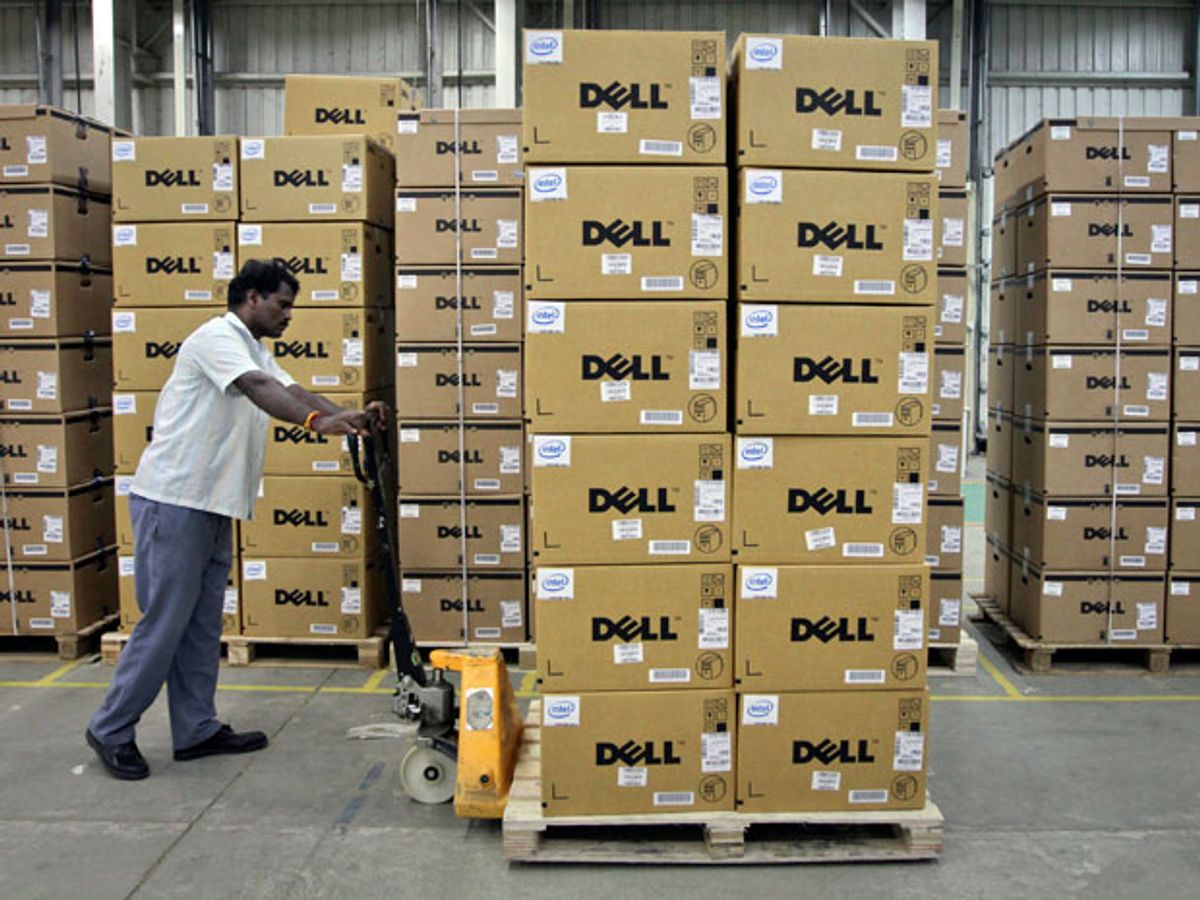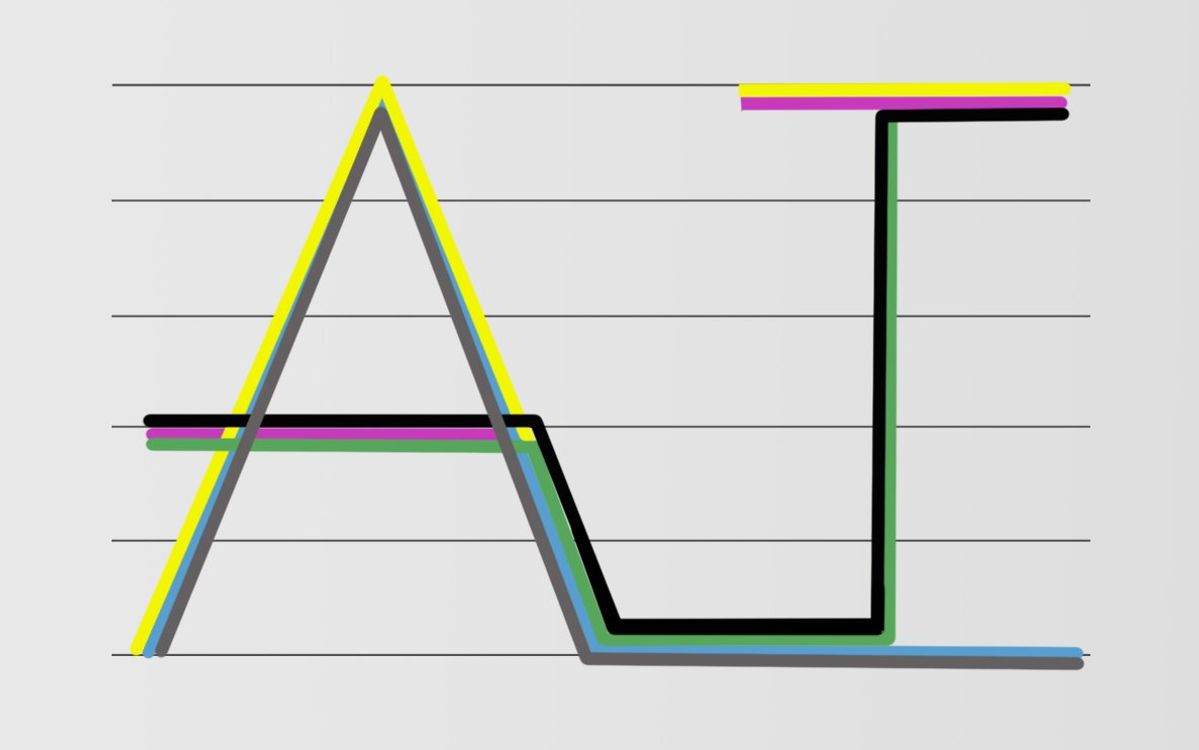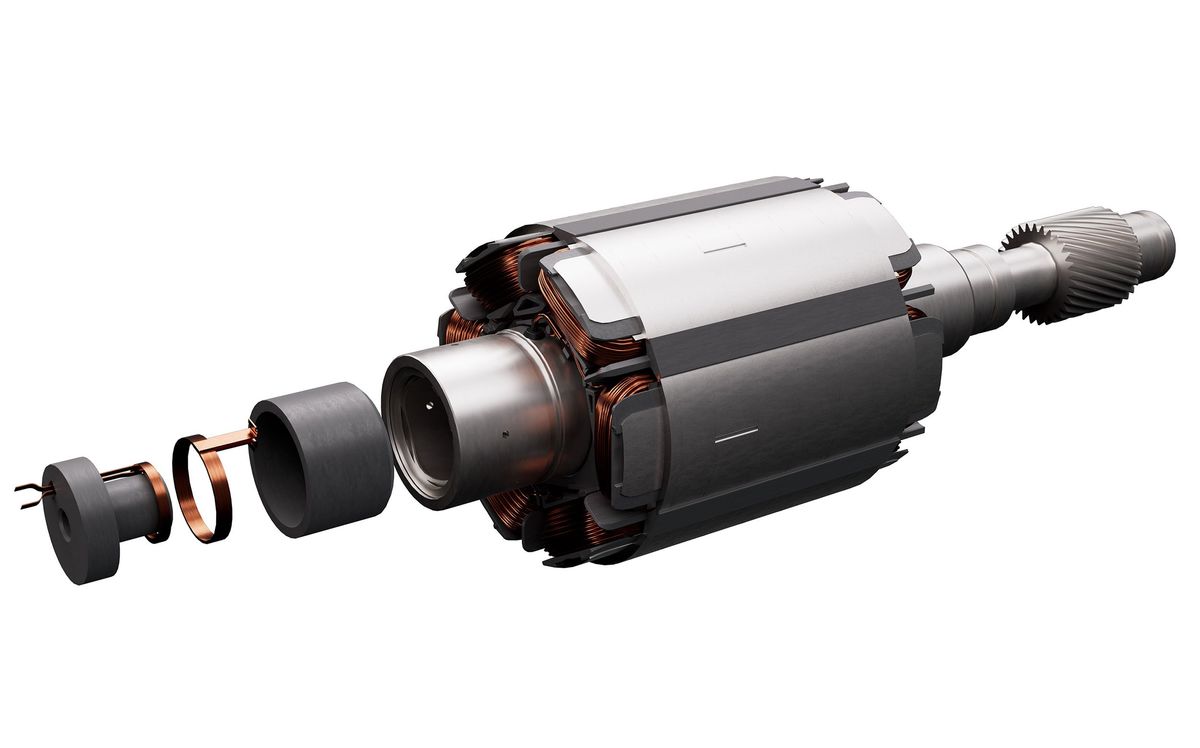In Wall Street’s largest leveraged buyout in six years, Dell Computer is going private. According to the New York Times, Michael Dell, who has put up a healthy chunk of his personal fortune, and his partners at private equity firm Silver Lake are sanguine about taking on an additional $15 billion because “Dell’s cash from operations has held steady for four of the last five years, coming in at $5.5 billion for the most recent fiscal year.” Me, I would be looking over my shoulder at those Chromebooks and worrying about how long the milk will flow.
The market for Dell’s PCs and laptops was already hollowing. Apple owns the high-value (and high-margin) end of the market—even five years ago, Apple was the manufacturer of two of every three computers costing more than $1000. iPads and its Android ilk are now directly eating into the commodity PC market—in the fourth quarter of 2012, tablet sales were up 75 percent, while PC sales declined by 6.4 percent, according to IDC. Just last week, Bloomberg reported that at Acer, Chromebooks are already outselling Windows 8 PCs. And the Chromebook threat isn't just the hardware. Google is, after all, a software company.
In the past few years, Google has turned Google Docs into a viable competitor to Microsoft Windows. And when I say viable, I mean in terms of features, usability, and reliability. In terms of price—Google Docs is free to individuals—it blows Office out of the water. (Personally, I’m coming to agree with Charles Cooper over at CNet when he says “it's time to move on.” Have you used it lately? It has a better word processor than Word.) With the browser handling almost everything else, including e-mail, what more do you need? Oh, how about your favorite Android apps? As it happens, James Kendrick over at ZDNet posed the question just last week, “Are Android apps for Chromebooks on the way?”
Well, there’s always the question of corporate support—office sales are at the heart of both Dell’s and Microsoft’s profitability. But as Kendrick’s colleague Steven J. Vaughan-Nichols noticed this morning, “CDW, a multi-billion dollar technology sales and support company, will be offering both Chromebook sales and management to their business customers.”
According to the Times, Dell “will cut its PC offerings further and buy more companies involved in corporate computing for small and medium-size businesses, said Brian T. Gladden, Dell’s chief financial officer.”
But those are the very companies that are the most sensitive to the $0 vs $99/year difference between Google Docs and Micosoft Office; that most often buy off-the-shelf support from companies like CDW; that are the slowest to make the leap to a new and puzzling version of Windows; and that most appreciate the cloud-orientation—and free backups—that the Chromebook philosophy represents. Dell has owned the small-business market for years because it made inexpensive, reliable computers. That’s exactly the value proposition that makes Chromebooks from Samsung and Acer—and now even HP—so attractive.
Oh, and let's not forget the threat of Linux. Preston Galla over at Computerworld reminds us that Microsoft's $2 billion loan, a key part of the private equity deal, is likely to keep Dell from straying too far from Windows, in any direction.
It’s not like Dell doesn’t see all this coming. At the January Consumer Electronics Show, it showed off a $50 Android thumbtop computer that plugs into a monitor or PC and talks to a mouse and keyboard wirelessly. (It’s basically a Raspberry Pi, at twice the price.) But is that any way to pay down $15 billion in debt? If Dell were still a public company, I’d be telling you to
buy
sell its stock short.
Michael Dell is hardly going to starve. But I’ll bet he won’t be worth $16 billion five years from now.
Photo: Reuters




